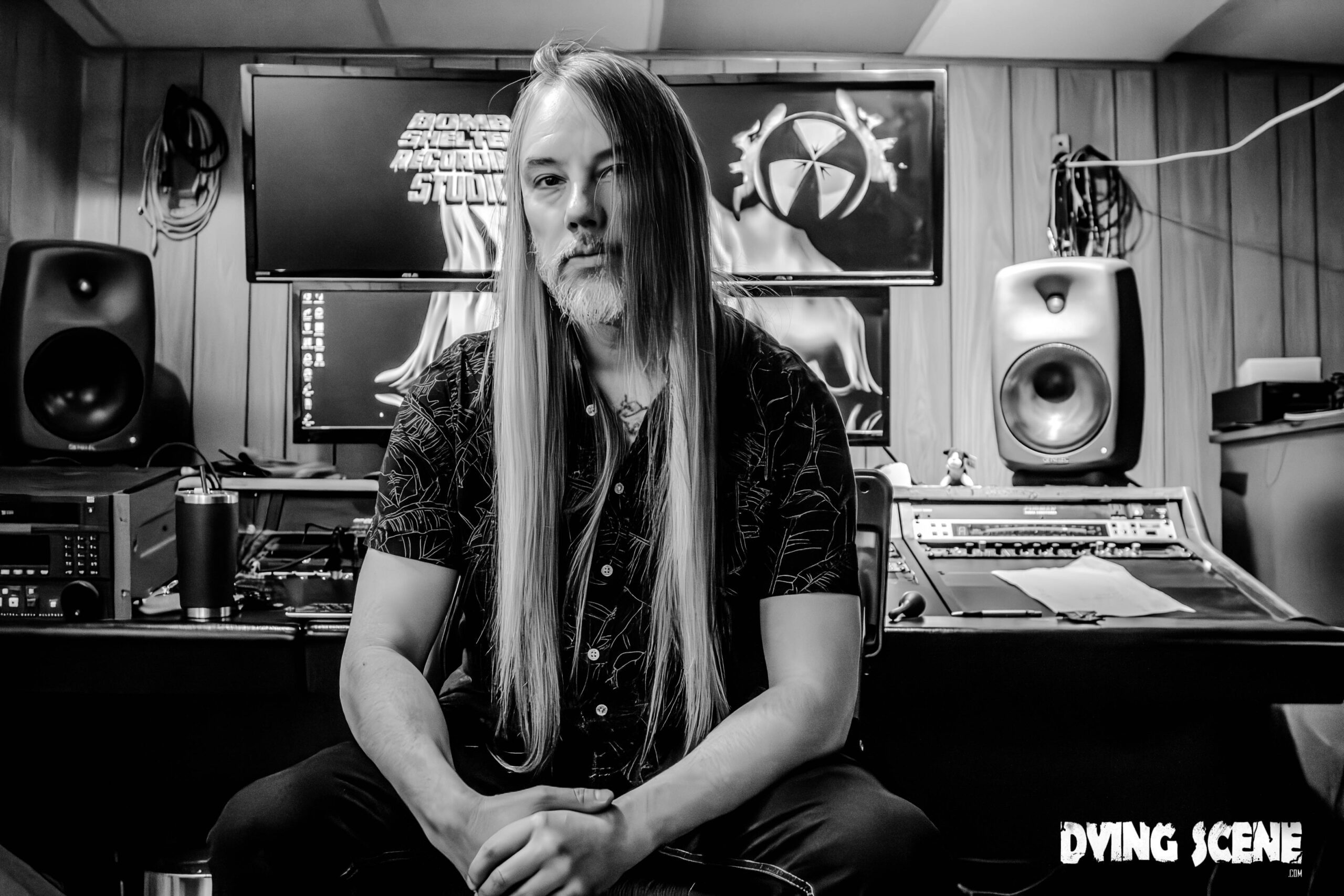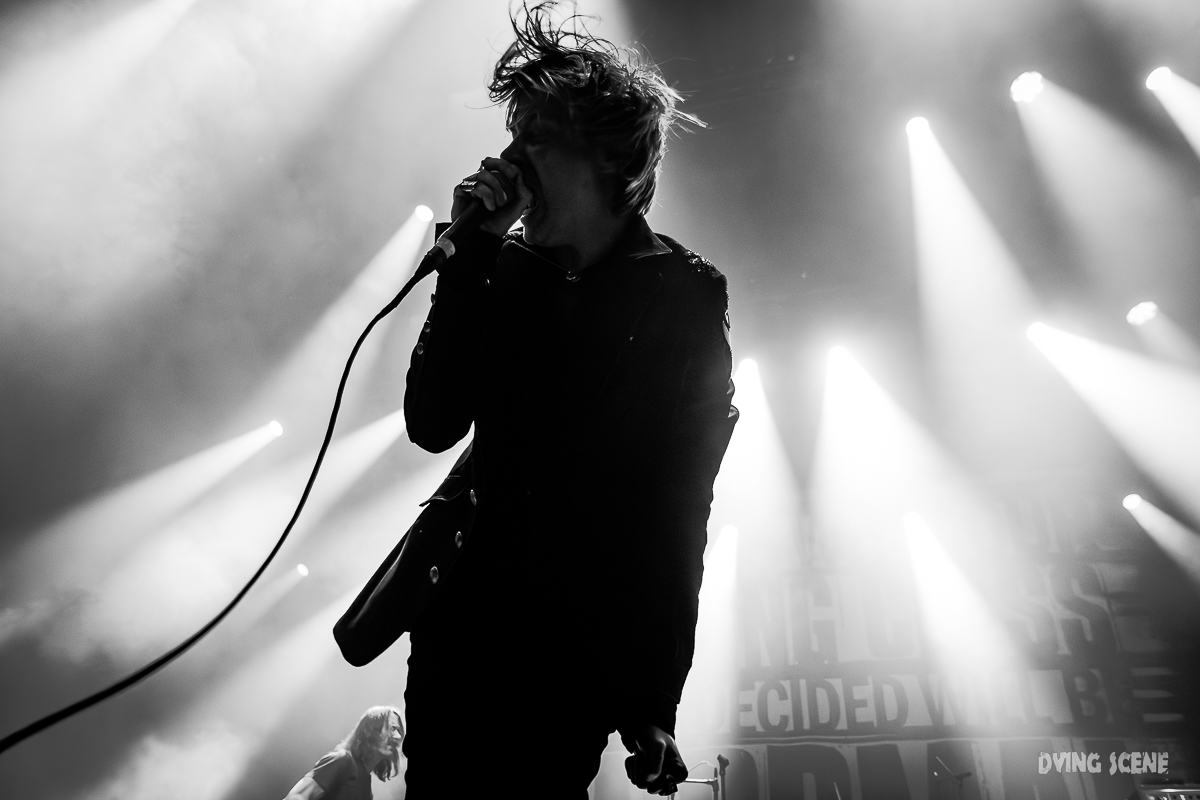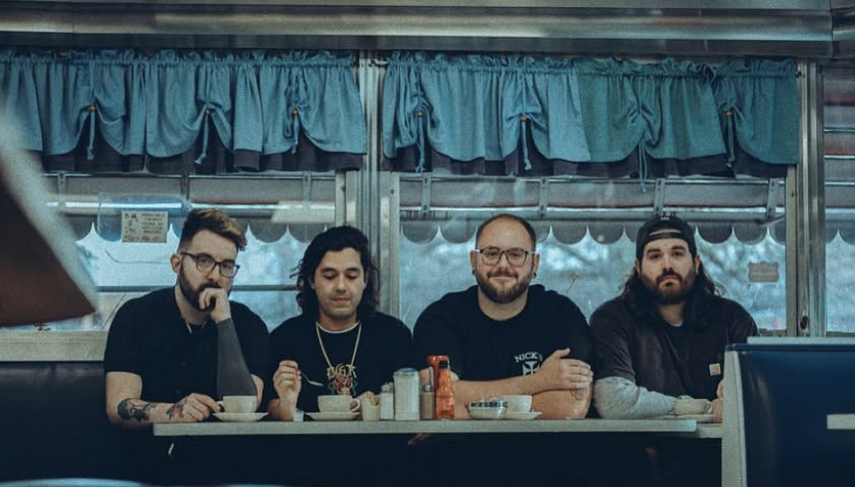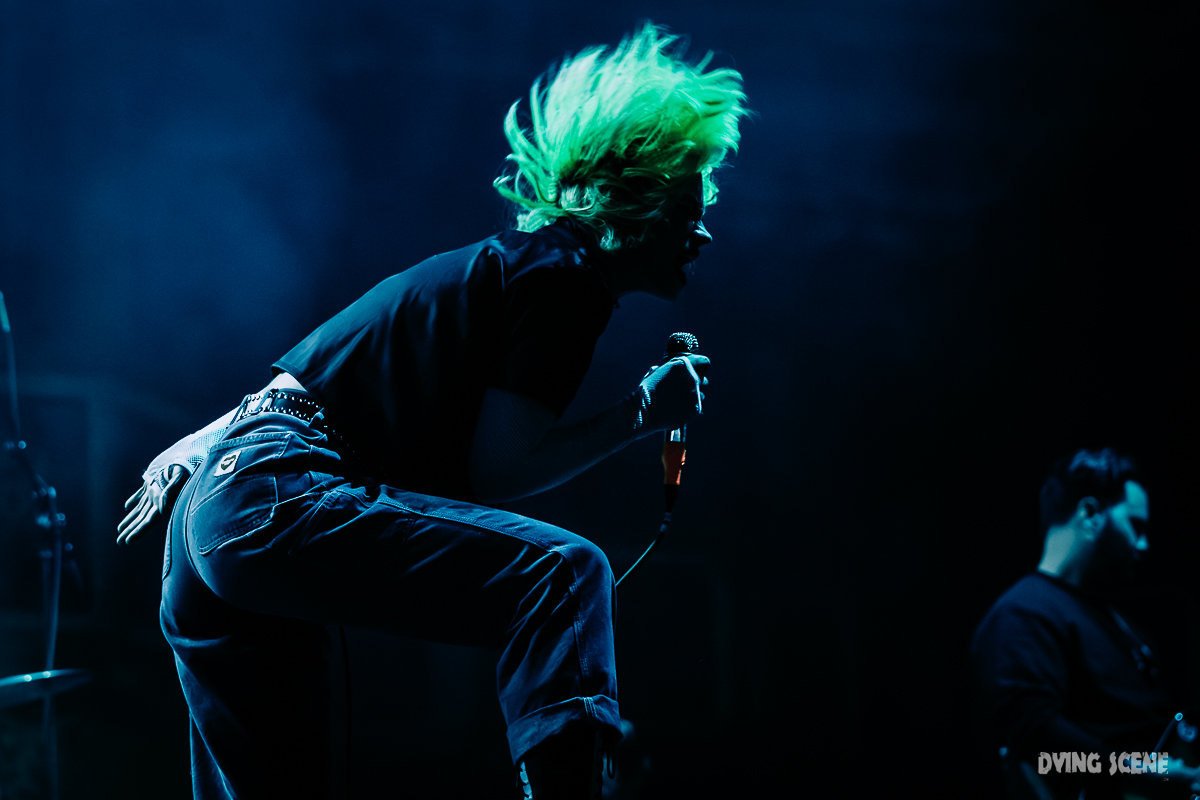Dan Wleklinski, aka “Dan Precision,” is one of the Chicago area punk scene’s top-level multi-hyphenates. As a musician, Wleklinksi was a founding member of 88 Fingers Louie; Rise Against; Soulscape; Break the Silence, and now The Iron Spiders. He is also a prolific record producer. I recently spent a few hours documenting his production work, on the upcoming Bumsy and the Moochers record, at The Bombshelter Recording Studio. He founded the studio in the basement of his suburban childhood home in 1999. Later, in a wide-ranging interview, in which we discussed his work as a musician and as a producer, he recalled some of his wildest experiences, his love of road trips on his motorcycle, and more.
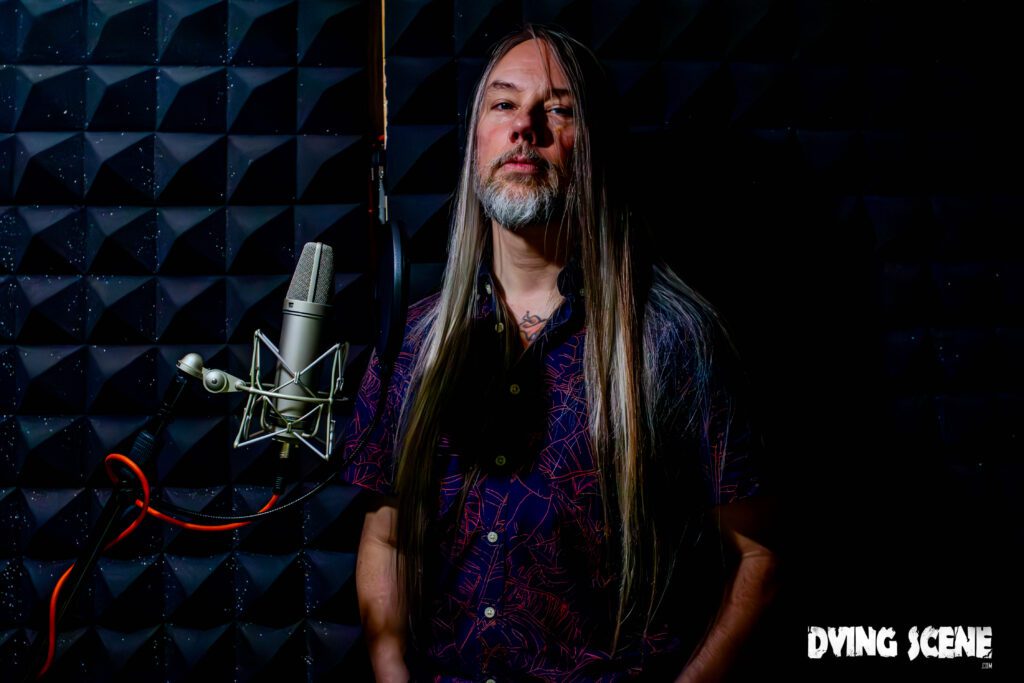
MerGold (Dying Scene): How did you get into music to start with?
Dan Wleklinksi: My parents had a very slight musical background, and my dad started to teach me some basic piano playing when I was around 5 years old. I started taking actual piano lessons at the age of 10, but I really wanted to play guitar. Unfortunately, my parents didn’t have enough money to buy a guitar for me and said that I couldn’t take guitar lessons. I told them that I would quit piano out of spite if I couldn’t take guitar lessons, and being the little a**hole kid that I was, I quit piano a few days later. Looking back, I wish I hadn’t done that because I would have been a much better and learned musician at this age. Luckily I started learning guitar at the age of 13.

Were there any shows or events you find particularly memorable? Good or bad?
The memorable events and shows are beyond count…both good and bad…like having 13 cop cars called on us in 2004 [in Fresno, CA when a member of Break The Silence] after we threatened a venue owner for not paying up. We were on tour with A Wilhelm Scream and Much the Same. Or in 1999, [with 88 Fingers Louie], almost fighting some Germans in Hamburg for accusing us of trashing their van. The dudes in At The Drive-In were going to back us up if that fight ever happened, but we got out of that one.
One of my favorite times was the weekend in 2014 [again, with 88 Fingers Louie] where we played Rock Fest in Montebello, Canada. There were so many cool bands that we shared the stage with, including Blink-182, Primus, Motley Crue, Megadeth, Danzig, Weezer, Cypress Hill, and so many more. Most of the bands stayed in the same 5-story hotel on the site of the festival, so we got to hang out and talk with so many cool musicians. We also had a view of several stages from our hotel rooms, so if we didn’t feel like going down, we could watch the bands from the comfort of our own rooms.

Favorite venues and events in Chicago; the same question for other locations?
I have played quite a few great venues in Chicago, including the Fireside Bowl, Bottom Lounge, The Metro, Livewire, House of Blues, and The Vic, but I’ve always loved playing Reggies.
There are many events that have been a blast to play, including Riot Fest in Chicago (we also played the Denver dates), Punk Rock Bowling in Las Vegas (and we played the New Jersey version as well), both Groezrock and Brakrock in Belgium, Music 4 Cancer and Rockfest in Canada, Rebellion Fest in the United Kingdom, and Punk Rock Holiday in Slovenia.

How do you decide which projects, bands, or musicians with whom to work?
As a musician, I really enjoy working with other players who share the same long-term vision and talent. I’ve been lucky to have started bands such as 88 Fingers Louie, Rise Against, Break the Silence, Soulscape, and now The Iron Spiders. At this point in my life, if I were going to consider being in a professional band, they would need to be a touring band. One of the most difficult things to deal with is the fact that I have the freedom to tour while several bands I’ve been a part of have lost that ability over time.

How did you then get into producing records? What was your first record?
My first real band, 88 Fingers Louie, recorded multiple times starting in 1993 with the esteemed producer, Mass Giorgini, at his studio, Sonic Iguana in Lafayette, Indiana. We recorded a bunch of EPs and 2 full albums there, including “Behind Bars” and “Back on the Streets.” During the “Back on the Streets” sessions, Mass commented that I had a very good ear for music and asked if I wanted to learn how to be an audio engineer. I agreed. I started by comping vocal tracks on “Back on the Streets” so that was technically the first record I ever worked on.
I opened my studio, The Bombshelter Recording Studio, in 1999, and the first band I recorded was The Poonanies. The singer, Tony, went on to form Chicago’s very own, Shot Baker.
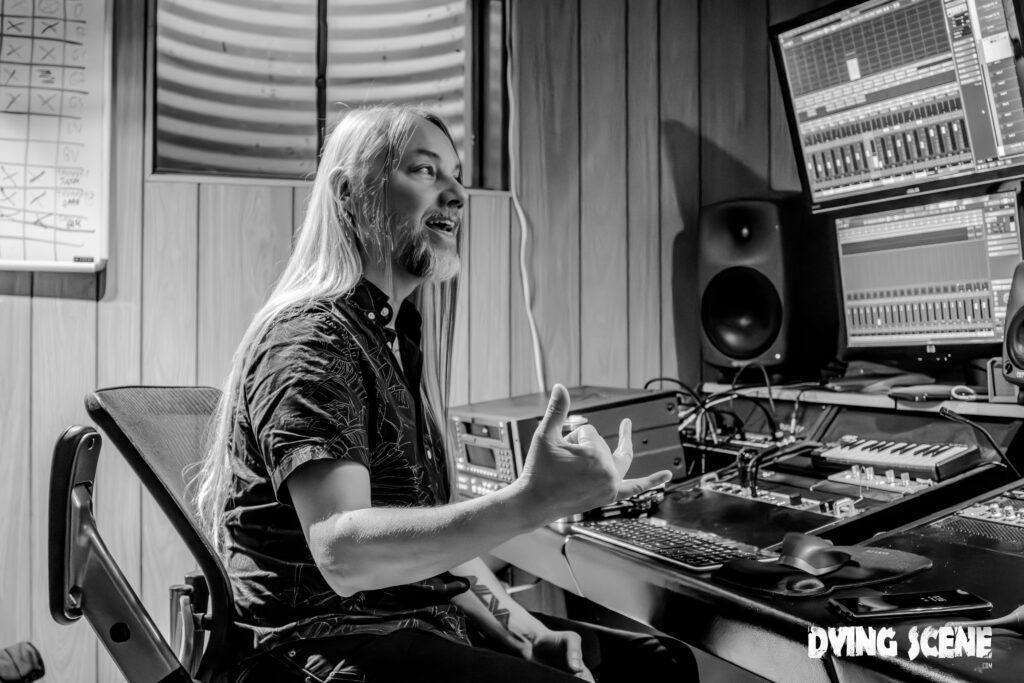
How do you decide which musicians to work with? Are there parameters for which you will turn down bands or projects?
Typically, bands ask to work with me from word-of-mouth of past clients, or seeing my name in the credits of albums I’ve recorded. I feel that with the rise in streaming over the last decade, the latter has been increasingly difficult to achieve visibility. I believe Spotify recently has started showing recording/producing/mixing credits if you click on the release, but the bands still need to input that information.
Most bands are great with sharing the recording credits to streaming platforms, and I feel it’s in their best interest to do so. Not only could it possibly open up other avenues of listeners, but it also helps the engineers and producers get their names out to other musicians who might like their production.
I don’t really turn down bands or projects. I’ve worked with bands who were 13 and 14 years old who were eager to learn. I’ve also worked with seasoned musicians in their 40’s, 50’s, and 60’s…and everything in between.
I have suggested bands to possibly go to a different producer if I feel we wouldn’t be a good fit. For example, I feel that bands and producers need to take time in the studio to make their recording the best it can be. If a band wants to record 10 songs in 2 days, I let them know that I don’t work that quickly as I believe the process and the quality suffers.

How collaborative is the process? Do you want the bands to come in with specific ideas, or do you take the lead?
The recording process can be very collaborative, and that’s one of my favorite parts in producing bands. I enjoy when bands have specific ideas and together, we can combine all of our musical experience and hone each song. However, there are many times when the band would like me to take the lead, and I am happy to do so.
That can be a little more difficult when I work with a band for the first time, but luckily, I have a lot of repeat clients, and each subsequent time, the collaboration becomes easier and more fruitful. It really is a beautiful thing to be creative with other musicians who may have different musical styles and backgrounds.

Have you worked on some musician’s debut albums? As in the musician has never been in a studio? What is that experience like?
Yes, I’ve worked with a few bands’ with it being their first time in the studio. Typically, those are teenaged bands looking to cut their first EP. I’ve also worked with guest musicians who are singing backing vocals or playing an accompanying part on an established band’s recording. Sometimes they are young…like a band member’s son or daughter. Other times they are talented mothers and fathers of the band currently in the studio. Either way, it’s always an enjoyable experience as they leave having learned something. I think I’m a bit like my father, who was a great teacher. It’s an awesome feeling to have bands return and to see the progress they have achieved since their last recording with me.

Related to being a producer, what are the best parts of owning your own studio? Are there challenges you were not fully aware of before owning your own studio?
As you may have gathered from my earlier answers, I love being in the studio, working with musicians, and also mixing and mastering on my own…basically, I love the audio portion of running the business. One of the more difficult parts for me is the advertising aspect. While I’m proud of the work I do, and I enjoy promoting bands’ releases, I don’t really like “talking myself up.” When I first started, I think I was lucky because people heard about the Bombshelter through the bands I was in. Over the years, word-of-mouth from happy clients has helped me continue to do what I love…for 25 years! I’m still slightly shocked that the month of September 2024 will be the 25th anniversary of The Bombshelter Recording Studio. “Thank you” to all of my past and especially return clients who have helped me do what I love for so long!

Last year you left the studio and the stages for a really cool reason. You embarked on a solo motorcycle road trip across part of the country, and brought your friends and fans with you via photos and video. How and when did you start riding? What does riding do for you?
Although I started riding 30 years ago, my first solo motorcycle tour was in 2022. Riding is usually very relaxing for me, and I believe the joy I experience on longer tours are an extension of my time touring with bands. There are so many memorable moments I’ve experienced the last few years, like riding the “Million Dollar Highway” in Colorado and through the “Needles Eye Tunnel” in South Dakota.

What was the journey like? Were there any particularly memorable moments good or bad? Any hair-raising moments?
I ask that last question recalling some of my own hair-raising moments riding in vans through Southeast Asia, and buses when I lived in Guatemala. Some of those steeply curved mountainsides were pretty scary. I can’t imagine how nerve-wracking it might be on a motorcycle.
I try not to think back too much on the “bad” or “hair-raising” moments like when animals jump in front of you, or trying to stay awake during the last hour of your Saddlesore 1000 (traveling 1000 miles in under 24 hours). However, I will always remember last year’s 10-hour ride from Fort Collins to Montrose, Colorado over Trail Ridge Road through Rocky Mountain National Park. It was both hair-raising and memorable to cross the highest point of 12,183 feet in 34 degree (1 degree Celsius) weather with snow on the sides of the road. Luckily the roads were mostly clear of snow and ice due to the warmth of the rising sun.
One of the more difficult things when touring in a band is having the time to enjoy the cities, environments, and scenery along the way. I get to enjoy all of those things while on my motorcycle trips. It is a goal of mine to combine both touring in a band while riding a motorcycle. The late Neil Peart wrote about his time doing that exact thing on several Rush tours, and it sounds heavenly to me!

Wleklinski is one of the most genuine, humble, and all-around nicest people I’ve met, not just in the punk scene, but anywhere. And of course, he has one of the best heads of hair in this scene as well. His long silver mane makes for some amazing on-stage images as he rocks it all over the place.
Those of us photographers who have had the pleasure to shoot him in concert will rue the day he ever decides to cut it off. However, that’s one move I don’t see Wleklinski making.
I do look forward to the future moves he makes in music, in record producing, as well as documenting further two-wheel adventures.
Thanks Dan, safe travels on your next road trip, and cheers!
Road trip images courtesy of Dan Wleklinski. All other photography by MGold for Dying Scene.
